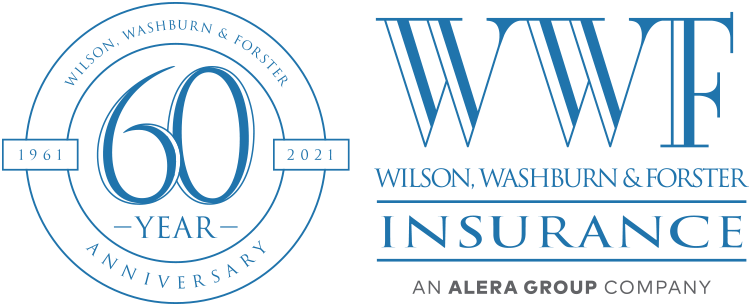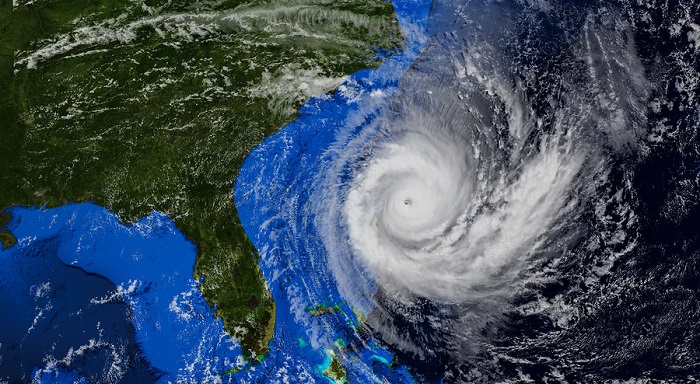NOAA’s Climate Prediction Center is expecting an above-normal 2020 Atlantic hurricane season, with 13 to 19 named storms, six to 10 hurricanes and three to six major hurricanes.
A major hurricane can be devastating for local businesses. According to FEMA, 40 percent of small businesses never reopen. Those that do reopen may continue to struggle. After three years, 75 percent of businesses without a continuity plan fail.
Between the above-normal season and the fact that the ongoing pandemic complicates everything, preparation and safety are more important than ever this year.
Secure the Property
The stronger your property is, the better its chances of weathering a storm.
- Check the roof and building for structural damage and other issues that could cause problems during a storm.
- Consider installing storm shutters.
- Reduce outside hazards. For example, keeping trees trimmed can help reduce debris and prevent damage. Additionally, if you have outdoor signs, furniture, trash bins or other items that could pose a danger during a hurricane, consider how they could be secured.
Create an Emergency Plan
You can’t prevent a hurricane from striking, but you can prepare for it.
- Make a checklist of what needs to be done to protect the property if a hurricane is expected to make landfall. This may include boarding up windows, placing sandbags, moving expensive equipment or essential files to a more secure location, unplugging electronics and turning off utilities. Make sure you have all necessary supplies for each task.
- Consider any potential hazards related to your industry. For example, do you store chemicals that could become unstable and cause a fire or explosion without proper temperature controls? Develop a plan (and a backup plan) to manage these risks and comply with all regulations and industry guidelines.
- Create backups of essential files. Store them in a safe location or use a cloud storage system.
- Prepare your workers. Assign tasks to workers and create backup plans in case the person assigned to a task isn’t there. Provide training and drills as needed.
- Prepare an emergency supply kit. In case anyone is forced to take shelter at your business, there should be an emergency supply with essential first aid supplies, food, water, flashlights, batteries, a radio, blankets, and other essential items.
- Protect your workers. Safety should be the top priority. Also remember that workers need to take care of their homes and families, too. Stay alert for hurricane warnings, obey all evacuations orders, and close the business when needed for safety.
Establish Communication
A natural disaster can close the normal lines of communication. At the same time, communication is especially important during an emergency. Decide ahead of time how you will communicate.
- Verify that you have up-to-date contact information for everyone in your company. This should include cell phone numbers, email addresses and emergency contact information.
- Create procedures for how you will communicate during a storm, including who will be responsible for what.
- Decide how you will communicate with customers, clients and vendors during and after a hurricane.
- Keep in mind that you may not be able to access your store or office during an emergency. Make sure someone has access to contact information.
Create a Plan for Resuming Operations
After the storm passes, the real work begins. Make sure your plans include procedures that will help your business get back on its feet.
- Can business be conducted remotely if necessary? What supplies will be needed to make this possible?
- Who will assess the property for hazards and ensure that it is safe for occupation? Watch out for electrical risks and other dangers.
- If the site cannot be reopened immediately, how will it be secured in the meantime?
- When will employees be expected to return to work? Which employees will need to return first? How will this be communicated to them?
- What companies and resources will be needed, such as insurance companies and restoration companies?
Check Your Insurance Coverage
Don’t wait until a storm is approaching. By then, it may be too late to change your insurance coverage. Act now to ensure that your coverage is adequate.
- Do you have coverage for damage caused by wind, heavy rains and flooding?
- Do you have coverage for business interruption caused by evacuations and hurricane damage?
- Are company vehicles and equipment fully covered?
- Are your limits high enough to cover possible losses?
Wilson, Washburn & Forster is a boutique independent insurance agency that has been in business since 1961. We have expertise and connections in the commercial insurance market and can also help customize the right mix of coverage to protect against the unique exposures of your business. You will find that our experience, claims handling, service, and community commitment is unrivaled.
Contact us today at 786-454-8384 for a complimentary analysis of your current insurance program by an insurance specialist in this field.








Leave a Reply